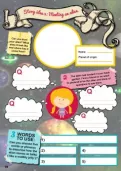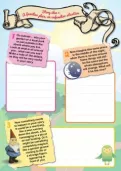Important update from TheSchoolRun
For the past 13 years, TheSchoolRun has been run by a small team of mums working from home, dedicated to providing quality educational resources to primary school parents. Unfortunately, rising supplier costs and falling revenue have made it impossible for us to continue operating, and we’ve had to make the difficult decision to close. The good news: We’ve arranged for another educational provider to take over many of our resources. These will be hosted on a new portal, where the content will be updated and expanded to support your child’s learning.
What this means for subscribers:
- Your subscription is still active, and for now, you can keep using the website as normal — just log in with your usual details to access all our articles and resources*.
- In a few months, all resources will move to the new portal. You’ll continue to have access there until your subscription ends. We’ll send you full details nearer the time.
- As a thank you for your support, we’ll also be sending you 16 primary school eBooks (worth £108.84) to download and keep.
A few changes to be aware of:
- The Learning Journey weekly email has ended, but your child’s plan will still be updated on your dashboard each Monday. Just log in to see the recommended worksheets.
- The 11+ weekly emails have now ended. We sent you all the remaining emails in the series at the end of March — please check your inbox (and spam folder) if you haven’t seen them. You can also follow the full programme here: 11+ Learning Journey.
If you have any questions, please contact us at [email protected]. Thank you for being part of our journey it’s been a privilege to support your family’s learning.
*If you need to reset your password, it will still work as usual. Please check your spam folder if the reset email doesn’t appear in your inbox.
How to give your child the right kind of praise

When I was a child praise didn’t come readily. A quick ‘well done’, maybe, but this was an age before sticker charts and well before children were given plasma televisions to aim for as prizes for doing well!
While I am sure we are all grateful that teachers and parents now generally understand that constant criticism never did a child any good, it seems we have now hit the other extreme, with iPods, games consoles and even foreign flights are some of the incentives offered to children by some schools and parents as a reward for good attendance.


Download a FREE Creative Writing toolkit!
- KS1 & KS2 workbooks
- Bursting with fill-in prompt sheets and inspiring ideas
- Story structure tips, style guides and editing suggestions
It seems that just when we all felt that we were doing it right; experts are now saying that again we have it all wrong. Praise is not the way to encourage a child they tell us. Forget incentives and prizes, and get rid of the star charts.
Reward schemes and praise: do they work?
In 2008 Harrogate Grammar School in North Yorkshire carried out a study into school reward schemes. They found that while rewards, stickers and treats change behaviour and work in the short term, once the rewards ended, the children reverted back. Those who didn’t achieve the reward lost motivation altogether.
Even with verbal praise, it seems it needs to be the right kind. Carol Dweck, author of Mindset: The New Psychology of Success: How We Can Learn to Fulfill Our Potential, talks about a study of two groups of children given problem solving tasks. On completion one group were told they must be very clever, the other group that they had worked very hard. The kids who had been told they had worked hard were happy to try another puzzle, the other group weren’t. There was too much to lose if they didn’t do so well.
So it is how we praise and reward that is important. If it is overdone children can become ‘star chart junkies’, in constant search of another incentive. It dilutes the desire to do well because learning is fun, or because the rules state they must. It can encourage children to only take part in things they are naturally good at as they become scared of failure, and think that if you can’t do something perfectly you shouldn’t do it at all. This undermines the importance of working at things and trying. So we need to ensure we don’t overdo it, that we make the praise relevant, and try to encourage self motivation.
Praise phrases that work
- “Well done. You must be proud of yourself.” This encourages the child to take control of their own pride in themself and become self-motivated.
- “Good work”. Praise the behaviour, not the child, to avoid the child thinking of themselves as ‘good’ or ‘bad’.
- “I love the colours you used in the pictures”. Be specific, instead of just saying “nice picture”. It shows that you really mean it and will help increase confidence in the child’s skills.
- “Fantastic. You worked really hard.” Avoid encouraging a fixed mindset where children think they are naturally good at something and don’t need to try. Acknowledge the importance of trying hard.
- Wink, nod or smile. Praise doesn’t always have to be verbal.








